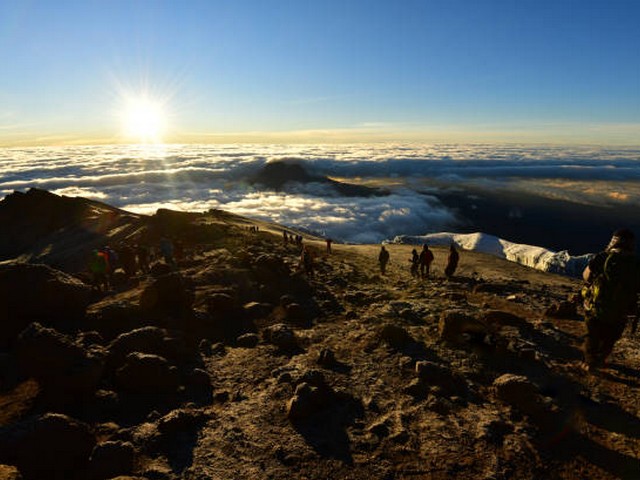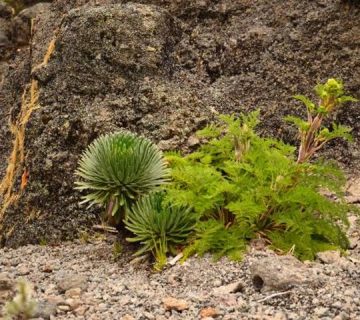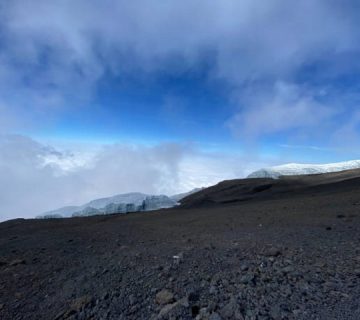Eco-Tourism on Kilimanjaro: Best Practices
Discovering the Majestic Beauty of Kilimanjaro Sustainably
Nestled in the heart of Tanzania, Mount Kilimanjaro isn’t just a spectacular natural wonder but also a beacon for eco-tourism enthusiasts from around the globe. As the highest peak in Africa, Kilimanjaro offers more than just breathtaking vistas and challenging treks; it offers an opportunity to engage in responsible tourism that cherishes the environment and supports local communities. At the Kilimanjaro Centre for Trekking and Ecotourism (KCTE), we are not just committed to guiding you to the summit; we’re dedicated to ensuring that every step takes into account the best eco-tourism practices. Join us as we explore how sustainable travel can enhance your experience while preserving this magnificent mountain for future generations.
Embracing Eco-Tourism: Why It Matters on Kilimanjaro
The Principles of Eco-Tourism
Eco-tourism is about more than enjoying the natural world; it’s about actively contributing to its preservation. It encompasses principles such as minimizing impact, respecting local cultures, providing financial benefits to local communities, and fostering environmental education. On Kilimanjaro, applying these principles means every trekker is not just a visitor but a guardian of the mountain’s legacy.
The Impact of Tourism on Kilimanjaro
Kilimanjaro attracts thousands of trekkers each year, each of whom carries the potential to impact the fragile ecosystems of the mountain. From littering to unnecessary water usage, the cumulative effect of small actions can be substantial. That’s why embracing eco-tourism isn’t just a choice—it’s a necessity.
How We Practice Eco-Tourism at KCTE
At KCTE, our commitment to eco-tourism is woven into the fabric of our operations. Here’s how we make a difference:
Sustainable Travel Practices
- Litter Management: We enforce a strict pack-in, pack-out policy, ensuring that all waste is removed from the mountain.
- Water Conservation: We emphasize the importance of water conservation and provide advice on minimizing water usage.
- Energy Efficiency: Our camps are equipped with solar panels to reduce reliance on non-renewable energy sources.
Supporting Local Communities
- Local Employment: We prioritize hiring local staff, providing fair wages and contributing to the local economy.
- Cultural Sensitivity: We offer cultural training for our guides and trekkers, fostering respect and understanding of local traditions and customs.
Conservation Efforts
- Flora and Fauna Protection: We educate our clients about the diverse species found on Kilimanjaro and the importance of keeping a safe and respectful distance.
- Trail Maintenance: We participate in regular clean-ups and maintenance efforts to keep the trails in good condition and reduce erosion.
Best Practices for Trekkers: Your Role in Eco-Tourism
Before the Trek
- Educate Yourself: Learn about the environmental issues facing Kilimanjaro and understand the local customs and culture.
- Pack Responsibly: Bring biodegradable products and avoid single-use plastics. Ensure that your gear is durable and suitable for the conditions.
During the Trek
- Stay on Trails: Minimize soil erosion by sticking to established trails and walking sites.
- Respect Wildlife: Observe wildlife from a distance, and do not feed or approach the animals.
- Conserve Resources: Be mindful of your water and energy use. Turn off lights and electronic devices when not in use.
After the Trek
- Share Your Experience: Educate others about eco-tourism practices on Kilimanjaro. Your stories can inspire more responsible tourism.
- Support Conservation Projects: Consider donating to or getting involved in local conservation initiatives.
Why Choose KCTE for Your Kilimanjaro Adventure?
Choosing the right partner for your climb is crucial, not just for your experience but also for the impact you leave behind. At KCTE, we don’t just guide treks; we ensure they are conducted with the utmost respect for the environment and the local communities. Our expert guides are trained in eco-tourism principles and are passionate about making every expedition a model of sustainable travel.
Embark on Your Eco-Conscious Journey to the Roof of Africa
Exploring Kilimanjaro with an eco-conscious mindset isn’t just about seeing new sights; it’s about connecting with nature and contributing to its preservation. By choosing eco-tourism practices, you’re not just a tourist; you’re part of a global community dedicated to making tourism a force for good.
FAQ: Eco-Tourism on Kilimanjaro
Q1: How can I be sure I’m practicing eco-tourism while climbing Kilimanjaro?
A1: Ensure that your actions align with eco-tourism principles such as minimizing environmental impact, respecting local cultures, and supporting local economies. Choose a certified eco-tourism operator like KCTE.
Q2: What are the benefits of eco-tourism for the local community?
A2: Eco-tourism helps generate sustainable income for local communities and promotes the preservation of cultural heritage and natural environments.
Q3: Can eco-tourism really make a difference on Kilimanjaro?
A3: Absolutely! Responsible practices by each trekker contribute to large-scale environmental preservation and community benefits.
Conclusion: Your Call to Action
Kilimanjaro awaits with its awe-inspiring heights and breathtaking landscapes, ready to be discovered in a way that honors the mountain and its people. At Kilimanjaro Centre for Trekking and Ecotourism (KCTE), we’re here to guide you on this incredible journey. Choose sustainable, choose impactful, choose KCTE for your Kilimanjaro climb. Let’s tread lightly and leave only footprints behind. Reach out today, and let’s plan your eco-friendly Kilimanjaro adventure together!




